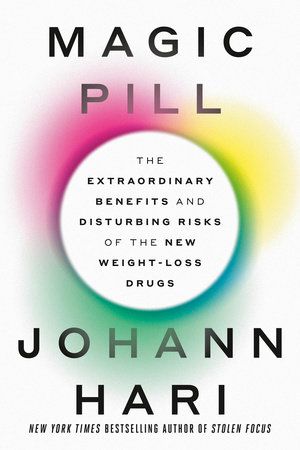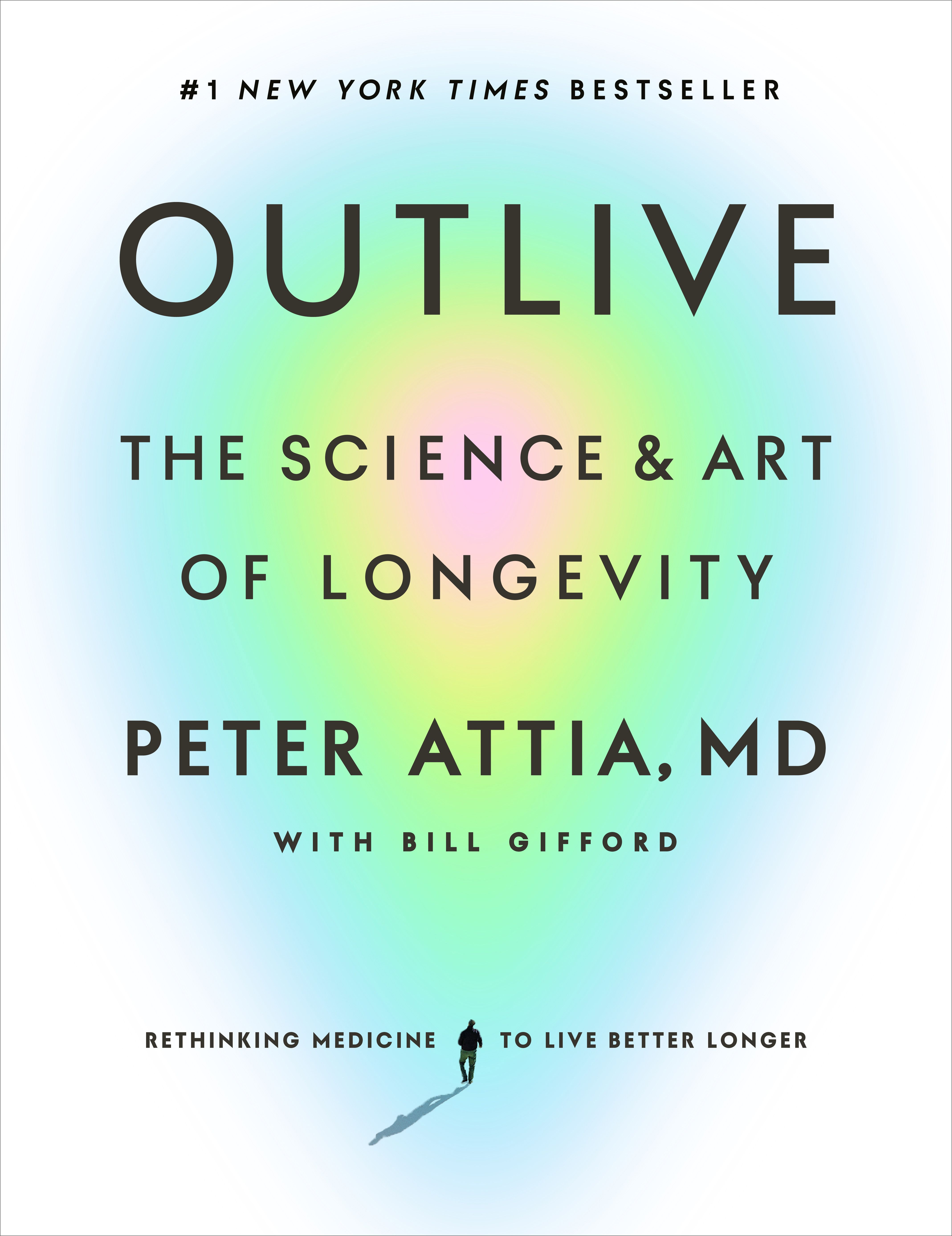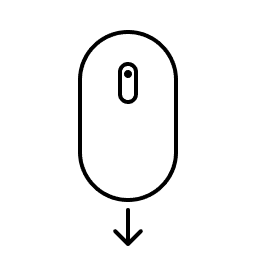Snippets about: Nutrition
Scroll left and right !
Our Broken Satiety Resurrected By Ozempic
Modern processed food has systematically undermined our natural feeling of satiety (fullness), driving overconsumption and obesity. Now Ozempic and similar drugs act to artificially boost satiety by mimicking natural gut hormones. In essence, an artificial solution (drugs) is correcting an artificial problem (broken satiety caused by processed foods).
"Obesity is an artificial problem in the sense that [we now eat] highly energy-dense foods that normally [don't exist] in nature...And now we've come up with an artificial solution, which is to fix the artificially undermined satiety through an artificially designed drug." - Michael Lowe, hunger and obesity researcher.
He argues we should focus on fixing the unnatural food environment rather than resorting to drugs.
Section: 1, Chapter: 3
Book: Magic PIll
Author: Johann Hari
The Protein Priority
Protein is the one macronutrient you don't want to restrict. Guidelines:
- Aim for at least 1.6g/kg daily; up to 2.2g/kg if active
- Prioritize high-quality complete proteins
- Distribute into 3-4 feedings of 0.4-0.55g/kg each for maximal muscle protein synthesis
- Vegans/vegetarians need ~20% more to account for reduced bioavailability and completeness
Section: 3, Chapter: 13
Book: Outlive
Author: Peter Attia
The Tsimane Tribe Enjoys Shockingly Healthy Hearts Through Simplicity
The Tsimane tribe of the Bolivian Amazon has the lowest rates of heart disease ever measured - an astounding 5 times lower than Americans'.
A whopping 90% of tribe members aged 40-94 had completely clean arteries. In contrast, nearly 50% of Americans have some coronary artery disease by age 40-50.
The Tsimane secret? A diet based on:
- Unprocessed carbohydrates (70% of calories)
- Lean animal protein and fish (25%)
- Fruits and vegetables (5%)
Section: 1, Chapter: 5
Book: Scarcity Brain
Author: Michael Easter
Limits of Nutritional Science
Nutritional epidemiology is limited in its ability to determine causality between specific foods and health outcomes due to confounding variables, reliance on inaccurate food frequency questionnaires, and healthy user bias. Even nutritional clinical trials are often flawed due to challenges with compliance and controlling for confounders over long periods. All this explains the frequent flip-flopping and contradictory results in dietary studies.
Section: 3, Chapter: 14
Book: Outlive
Author: Peter Attia
The Modern Food Environment Hijacks Our Natural Drives
For most of human history, food was bland and scarce; They often didn't know where their next meal would come from. In this environment of scarcity, our brains evolved to release massive amounts of dopamine in response to rare tastes like sweet and fatty flavors, making us crave more.
Fast forward to today. Our food system is now abundant in cheap, convenient, and intensely flavorful options.
The result: We massively overeat. 60% of the American diet is now ultraprocessed foods optimized for overconsumption. 60% of adults and 30% of children are now overweight. And lifestyle diseases like diabetes, heart disease, and certain cancers are skyrocketing globally.
Section: 1, Chapter: 8
Book: Scarcity Brain
Author: Michael Easter
Highly Processed Foods Are Engineered To Be Impossible To Resist
Food doesn't just satisfy physical hunger - it also provides entertainment, pleasure, and emotional comfort. Ultraprocessed foods are expertly engineered to fulfill all those needs too well.
Compared to whole foods, highly processed products are hyperpalatable, calorie dense, quickly digested, and portable and long-lasting. To defend yourself:
- Aim for single-ingredient foods 80% of the time. Don't keep tempting ultraprocessed snacks in the house.
- Stick to a structured meal schedule. Don't graze all day - give yourself a chance to feel true hunger.
- Pile your plate with fiber-rich foods first - salad, fruit, whole grains. They keep you full on fewer calories.
- Beware of "health halos." Organic/vegan/keto junk food is still junk food!
Section: 1, Chapter: 8
Book: Scarcity Brain
Author: Michael Easter
The Diet Debate Dilemma
The debate over the optimal diet is rife with contradictions, competing dogmas, and ideological battles not rooted in science. Adherents of low-fat, vegan, carnivore, paleo, and keto diets all passionately proclaim theirs as the One True Way, despite a lack of conclusive evidence. The key problem: believing there is one perfect diet for all people.
Section: 3, Chapter: 14
Book: Outlive
Author: Peter Attia
The Surprising Benefits Of Feeling Hunger
After a week of stalking caribou with minimal food, the author experiences persistent, gnawing hunger - an unfamiliar sensation for someone used to constant access to calories. But the hunger also brings mental clarity and a kind of energized focus.
Neuroscience shows that hunger is a key driver of motivation, prompting humans to explore, learn, and take risks in pursuit of a goal. When we have effortless access to plentiful food, we dull that inner spark. Intermittent fasting, whether for 12-16 hours overnight or for whole days, has been shown to:
- Improve insulin sensitivity and promote fat burning
- Increase BDNF, a protein that enhances memory and learning
- Trigger autophagy, a cellular cleanup process that optimizes performance
- Boost mental clarity and ability to focus
Section: 1, Chapter: 14
Book: The Comfort Crisis
Author: Michael Easter
The 5 Hidden Hungers Behind Overeating
Ozempic starkly reveals that hunger isn't just about the body's physical need for sustenance. The author identifies at least 5 other "hungers" that drive overeating:
- Pleasure hunger: Seeking the sensory/emotional delights of food
- Soothing hunger: Eating to numb or escape painful emotions
- Childhood hunger: Replicating dysfunctional childhood eating patterns
- Protective hunger: Using fat/overeating to insulate from sexual attention, expectations, stressors
- Habit hunger: Eating on autopilot due to ingrained routines
When Ozempic removes physical hunger, these hidden emotional/behavioral hungers stand out in stark relief. Only by identifying and addressing them can the obesity epidemic be truly solved.
Section: 1, Chapter: 8
Book: Magic PIll
Author: Johann Hari
The Obesogenic Environment Sabotages Most Diets
Even if you manage to lose weight, you likely did it in the same environment (family, job, commute, city) that made you obese. This environment will constantly tug you back:
- Junk food is still ubiquitous, cheap, heavily marketed - you swim in it
- You likely still face the stress, emotions, lifestyle that led you to overeat
- Your family/social habits around food may not have changed
- You now face intense biological backlash from your own body
Some determined individuals can white-knuckle their way through this, but it's not a realistic solution for populations. To reduce obesity, we can't just say "have more willpower" - we have to actually change the environment we all live in.
Section: 1, Chapter: 6
Book: Magic PIll
Author: Johann Hari
Ultraprocessed Foods Disrupt Satiety And Make Us Eat More
"We found that people ate the ultra-processed meals a lot quicker...This could be because the Tsimane foods led the participants' brains to pump out more of a hormone called PYY, which reduced their appetite. They also decreased a hormone called ghrelin, which made them hungry. The Tsimane foods even took more work to physically chew. The ultra-processed diet, meanwhile, did the opposite. It cut those natural brakes that help us find enough." - Kevin Hall, Researcher
Section: 1, Chapter: 5
Book: Scarcity Brain
Author: Michael Easter
Ozempic Transforms The Author's Appetite
The author describes his personal experience starting Ozempic. Within days, his ravenous appetite disappeared - he went from eating large portions to feeling full after a few bites. Foods he used to love became unappetizing. While thrilled with the rapid weight loss, he also felt ambivalent and disconcerted by the changes.
Section: 1, Chapter: 1
Book: Magic PIll
Author: Johann Hari
How Modern Eating Patterns Disrupt Ancient Biological Rhythms
Hunter-gatherers typically ate in a compressed window, going 12-16 hours between dinner and breakfast, with little to no snacking in between. But the modern eating cycle has expanded dramatically - the average person now consumes food for 15 hours of their waking day, with a 75% increase in snacking just since 1978.
This constant consumption runs counter to the body's evolved circadian rhythms. During a fasting period of 12-16 hours, the body shifts into a regenerative state called autophagy, breaking down old cellular debris and essentially "taking out the trash" to optimize function. But we short-circuit this process by keeping insulin elevated with frequent meals and snacks.
Most eating is now prompted by environmental cues like time of day or availability of treats, rather than actual physical need. Nutrient researcher Satchin Panda recommends limiting eating to a 10-12 hour window to restore healthy metabolic cycles, with benefits for glucose control, inflammation, cognition and cellular cleanup.
Section: 1, Chapter: 15
Book: The Comfort Crisis
Author: Michael Easter
The Dangers Of Daytime Fasting During Pregnancy
Levitt and Dubner examine data on babies born to Muslim mothers who fasted during daylight hours while pregnant during the holy month of Ramadan. Remarkably, they find these babies have a 20% higher likelihood of developing disabilities as adults compared to siblings born in non-Ramadan months.
The effect is most pronounced in summer months in high latitude areas like Michigan, when daylight fasting periods are longest (up to 15 hours). The authors speculate that the extended disruption to the mothers' nutritional intake and circadian rhythms harms fetal development. This powerful example shows how even a short-term shock (1 month out of a 9-month pregnancy) can have lifelong impacts if it occurs during a critical developmental window. More broadly, it highlights the overwhelming importance of prenatal conditions in shaping adult outcomes.
Section: 1, Chapter: 2
Book: Super Freakonomics
Author: Steven D. Levitt , Stephen J. Dubner
The Emotional Earthquake Of Losing Overeating
For many, compulsive overeating serves a crucial emotional purpose. It soothes anxiety, numbs trauma, fills voids of loneliness and boredom. It's a way to "feed" unmet needs. So when a drug like Ozempic suddenly removes the overeating outlet, it can trigger a kind of psychological earthquake. Difficult emotions come flooding back. Stressful situations feel overwhelming without food to soften the edges.
For some, it may even trigger a switch to other compulsions like alcoholism. Before starting weight loss drugs, it's crucial to understand "what job overeating was doing for you" and to line up alternative coping tools. Ozempic may block destructive eating behaviors, but it doesn't automatically resolve their emotional drivers.
Section: 1, Chapter: 8
Book: Magic PIll
Author: Johann Hari
The Miracle Of Japanese Thinness
Visiting Japan, the author is stunned to discover a wealthy modern nation that has seemingly avoided the obesity crisis plaguing the West. Some eye-popping facts:
- Japan's obesity rate is just 3.6%, vs 25% UK and 42% US
- Japanese obesity is falling by nearly 1% a year even as national wealth grows
- The average Japanese person weighs 23 lbs less today than the average American
- This astonishing leanness translates to the highest healthy life expectancy on earth
So what's Japan's secret? The author finds a food culture laser-focused on quality, not quantity - small portions, simple preparations, celebrating natural flavors. But it's not a culture of deprivation - the Japanese simply don't seem to battle a ravenous "Western" hunger.
Section: 1, Chapter: 12
Book: Magic PIll
Author: Johann Hari
Every Culture Has Its Own Idea Of "Tasty" That Drives Overeating
In the U.S., a "bliss point" of sugar, salt, and fat defines deliciousness. But "tasty" is relative across cultures - and it's not always healthy:
- In the Middle East, Captagon (a type of meth) is considered a tasty treat. Its use is surging, ravaging communities.
- The Tsimane tribe of Bolivia finds plain chicken and rice delicious. But when they encountered the Western diet, rates of heart disease spiked.
- In Medieval times, European nobility gorged themselves on meat - a status symbol. Gout and heart attacks were badges of high status!
This suggests overeating is only partly driven by flavor. Deliciousness is a cultural construct - and often one at odds with health. In every time and place, we elevate foods that are scarce, expensive, or forbidden. When those foods become abundant, we struggle to regulate.
Section: 1, Chapter: 8
Book: Scarcity Brain
Author: Michael Easter
7 Ways Processed Food Hijacks Your Hunger
Ultra-processed foods undermine our natural satiety (feeling of fullness) in at least 7 ways:
- We chew them less so fullness signals are delayed
- The potent combo of sugar, fat and carbs activates primal drives to overeat
- They lack protein and fiber which help trigger satiety
- They flood us with hunger-triggering sugar spikes and crashes
- Artificial sweeteners paradoxically make us hungrier
- Flavoring additives overrides natural "nutritional wisdom"
- They damage diversity of gut bacteria that help regulate appetite
Section: 1, Chapter: 2
Book: Magic PIll
Author: Johann Hari
The Nutrition Paradox
"I once believed that diet and nutrition could cure almost all ills, but I no longer feel that strongly about it. Nutritional biochemistry is an important component of our tactics, but it is not the only path to longevity, or even the most powerful one."
Section: 3, Chapter: 15
Book: Outlive
Author: Peter Attia
The Unprecedented Fattening Of Humanity
Starting in the late 1970s, something unprecedented happened - obesity rates skyrocketed across the world, more than doubling in the US between 1979-2000. This had never happened before in human history and could not be explained by genetics. The food environment had transformed, flooding us with addictive processed foods.
Scientist Paul Kenny ran an experiment where rats were exposed to the modern American diet - cheesecake, bacon, sugary foods. The rats quickly became addicted, ballooned in weight, and kept overeating even when it meant enduring painful electric shocks. When the junk food was taken away, they starved rather than going back to healthy chow. This mirrors how the human food environment has overridden our natural appetite regulation.
Section: 1, Chapter: 2
Book: Magic PIll
Author: Johann Hari
The Common-Sense Diet
Follow these eight simple nutrition principles:
- Eat whole, unprocessed foods 80-90% of the time
- Stop eating before you're completely full (80% satiety)
- Get enough protein (about 0.8g per pound of body weight for active people)
- Avoid foods that make YOU feel and perform poorly
- Drink plenty of water and limit alcohol
- Include vegetables or fruits at every meal
- Find a meal frequency that works for YOUR life
- Don't take your diet so seriously that you miss out on life experiences
Focus on high-quality protein sources (meat, fish, eggs, yogurt), nutrient-dense carbohydrates (whole grains, potatoes, fruits, vegetables), and healthy fats (nuts, olive oil, avocados).
Section: 4, Chapter: 25
Book: The 5 Types of Wealth
Author: Sahil Bloom
The Dopamine Trap and Food
"In evolutionary terms, this property of palatable foods used to be advantageous in environments where food sources were scarce and/or unreliable because it ensured that food was eaten when available, enabling energy to be stored in the body (as fat) for future use. However, in societies like ours, where food is plentiful and ubiquitous, this adaptation has become a dangerous liability."
Section: 1, Chapter: 14
Book: The Comfort Crisis
Author: Michael Easter
The Futility Of Dieting For Most
An analysis of 2000 diet studies found that despite the intuitive appeal of "eat less, move more," diets simply don't work long-term for most people. The findings are stark:
- 2 years after starting a diet, people weigh on average only 2 lbs less than when they started
- 5 years out, the average loss is still only 6.6 lbs
- At most 20% of people maintain a 10% weight loss for a year
- Up to 66% of people actually gain fat mass despite exercising
This dismal track record is not due to individual failings, but to biological and environmental factors that doom most diets.
Section: 1, Chapter: 6
Book: Magic PIll
Author: Johann Hari
Books about Nutrition
Health
Medicine
Science
Nutrition
Magic Pill Book Summary
Johann Hari
In "The Magic Pill," Johann Hari takes readers on a deeply personal and rigorously researched journey into the complex world of obesity and the revolutionary new weight-loss drugs that promise to fight it, grappling with the profound ethical, societal, and scientific questions they raise about our relationship with food, health, and the future of our bodies.

Health
Nutrition
Science
Outlive Book Summary
Peter Attia
In "Outlive: The Science and Art of Longevity," Dr. Peter Attia shares his framework for extending lifespan and optimizing healthspan through the application of leading research in nutrition, exercise, sleep, emotional well-being, and preventive medicine



